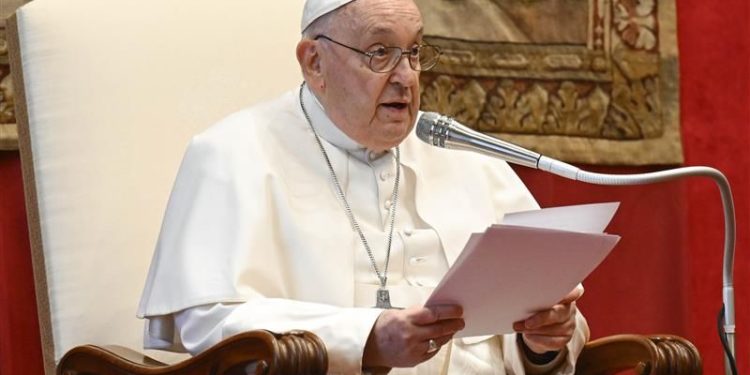The pope noted that the cessation of armed conflict “calls for more than simply setting aside the instruments of war. It demands addressing the injustices that are the root causes of conflict.”
Francis’ letter touched upon many of the core themes of his pontificate, including the climate crisis, global food scarcity, economic inequality, and the exploitation of laborers in developing countries.
“The exploitation of natural resources continues to enrich a few while leaving entire populations, who are the natural beneficiaries of these resources, in a state of destitution and poverty,” Francis wrote.
The pope’s letter went on to also highlight the massive social changes brought about by the globalization of financial markets, which has “demonstrated the interdependence of the world’s nations and peoples.” The Holy Father appealed for a “fundamentally moral dimension” that “must make itself felt in the economic, cultural, political, and religious discussions that aim to shape the future of the international community.”
Speaking to the importance of harmonizing state policy and business practices to arrive at more sustainable models of growth and economic development, the pope reiterated that these new economic paradigms must be “farsighted” and “ethically sound,” which “by their very nature must entail subordinating the pursuit of power and individual gain, be it political or economic, to the common good of our human family, giving priority to the poor, the needy, and those in the most vulnerable situations.”
Pope Francis also emphasized the role nongovernmental organizations (NGOs) and intergovernmental organizations (IGOs) play as critical stakeholders in advancing social and economic development.
Credit: Source link



